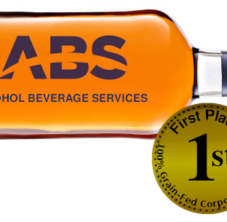This is part 1 in a 4 part series debunking the excuses ABS uses to justify its existence, identify who benefits from this monopoly, and what (if anything) can be done to dismantle it.
John and Jerry, residents of Silver Spring, are preparing a small summer wedding and an even smaller reception. They go to one of the supermarkets to buy everything they need: baked goods, meats, paper plates and plastic cutlery (all to be properly recycled), and soft drinks. Unfortunately they can’t purchase liquor anywhere near by.
Paula and Mike, residents of up-county, frequent their favorite Italian restaurant, a cozy place in Germantown. Their preferred meal starts with bruschetta, followed by linguine vongole, all washed down with a bottle of Lafite Bordeaux. The spike in their glycemic index can be heard as far as the Frederick County line. What’s worse, the restaurant was required to purchase that bottle of white wine from a county-owned wholesaler.
Malcolm, a caterer in upscale Bethesda, is providing a sloshy year-end bash for the National Institutes of Health. He promised the event planner that he’ll have two cases of Bailey’s Irish Cream on hand. On the day of the event, Malcolm realized that his bottles of Bailey’s were pilfered (probably by his brother-in-law). As his place of business is in Montgomery County, he must purchase the replacement liquor at a county-owned store. The county-owned store doesn’t have any Bailey’s in stock, so Malcolm is now stuck fabricating excuses to the NIH’s event planner, who no doubt will be thinking about a different caterer for next year’s event.
If these residents lived in Frederick, Washington, Cecil, Wicomoco, or any of Maryland’s 22 other counties, they would not need to make the extra trip to a special store. Residents of those jurisdictions can purchase beer, wine, and liquor right in the same store. Why is it that Montgomery County’s residents and business owners are so inconvenienced?
It’s because of the county’s Alcoholic Beverage Services (ABS). At the retail level, all residents must purchase their liquor through county-owned stores. At the wholesale level, restaurants, bars, stores, and caterers must purchase all alcoholic beverages (beer, wine, and liquor) through ABS.
ABS is a perfect example of a corporate monopoly, and is remarkably similar to the bankrupt monopolies established by British monarchs that so exploited American colonists and British commoners alike. The county’s charter includes a seven-page appendix called Rules and Regulations of the Board of License Commissioners of Montgomery County, Maryland. This labyrinthine appendix defines terms such as beer, youth center, mixed drink, and 17 (!) classes of licenses. According to Appendix D, Chapter 3, Section 10-503, subsection 3.11, paragraph (b), licensees cannot move a friggin’ toilet from one side of the bathroom to another without getting a permit. The only other county monopoly that is more controlling, more bankrupt, and a larger welfare case is the public school system. Just as the British enacted illegitimate trade restrictions on the colonists, so ABS uses reconstituted colonial-era regulations to extract resources from everyone to the benefit of its workers and the crown.
Opponents of ABS say that it is an anomaly: Montgomery County is one of two counties in the entire United States that has a monopoly on liquor. (I never could find the name of the other one.) That anomaly alone proves ABS is unjustified. I don’t agree. While in any other Maryland county liquor is sold at the retail level in private stores, in all of neighboring Virginia, West Virginia, Pennsylvania, and 15 other states, retail liquor is sold in state-owned stores. That is arguably a worse situation than what we face.


